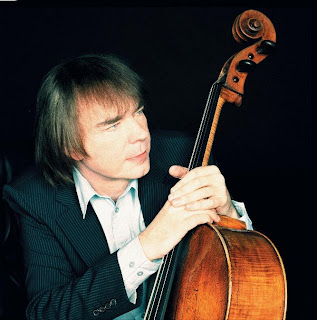 (Pic: Julian Lloyd-Webber)
(Pic: Julian Lloyd-Webber)Gratifyingly large audience for all-Russian concert. (Review by Michael Green)
This was an all-Russian concert, the modern and the late-Romantic, Shostakovich and Rachmaninov, and there was a gratifyingly large audience in the Durban City Hall to hear another excellent performance from the KZN Philharmonic Orchestra and a distinguished soloist.
The conductor was Yasuo Shinozaki from Japan, small of stature but big in personality, as he has shown in previous appearances here. The soloist was the English cellist Julian Lloyd-Webber, brother of Andrew Lloyd-Webber, the celebrated composer of musicals.
The concert opened with a brilliant account of Shostakovich’s Festive Overture, conducted and performed with great vigour and enthusiasm. Shostakovich was a master of orchestration and he shows all his skills in this short work. The 70 players involved obviously enjoyed the performance, as did the audience. Here was proof again that, good as they may be, CDs and other recorded music are not quite like a live performance by a big orchestra.
Shostakovich’s Cello Concerto No. 1 in E flat major was written in 1959, fifty years ago, but it is still very modern to most ears. It has an unusual structure. There are four movements but only one break, so the work is divided into two parts. One of those movements is a lengthy Cadenza for solo cello. The first movement is dominated by a four-note phrase and it is typically astringent. The Moderato that follows is a good deal more mellow and approachable, and there is a fast finale with driving rhythms.
Julian Lloyd-Webber, a burly man who looks younger than his 58 years, is a cellist of the first rank, and he played this difficult work with great sensitivity and authority. The cadenza, full of tricky double-stopping, gave him ample opportunity to display his technical prowess, and he produced a beautiful tone in the cantabile passages.
This concerto is scored for strings, wind instruments, celeste and a solitary horn. The conductor and all the players deserve commendation for their contribution. In response to prolonged applause, Julian Lloyd-Webber played an encore, sustaining the modern mood with a short piece by Benjamin Britten.
After the interval the orchestra scored another success with Rachmaninov’s long and eloquent Symphony No. 2 in E minor. The audience seemed to find this an interesting and not displeasing comparison with what had gone before. - Michael Green











